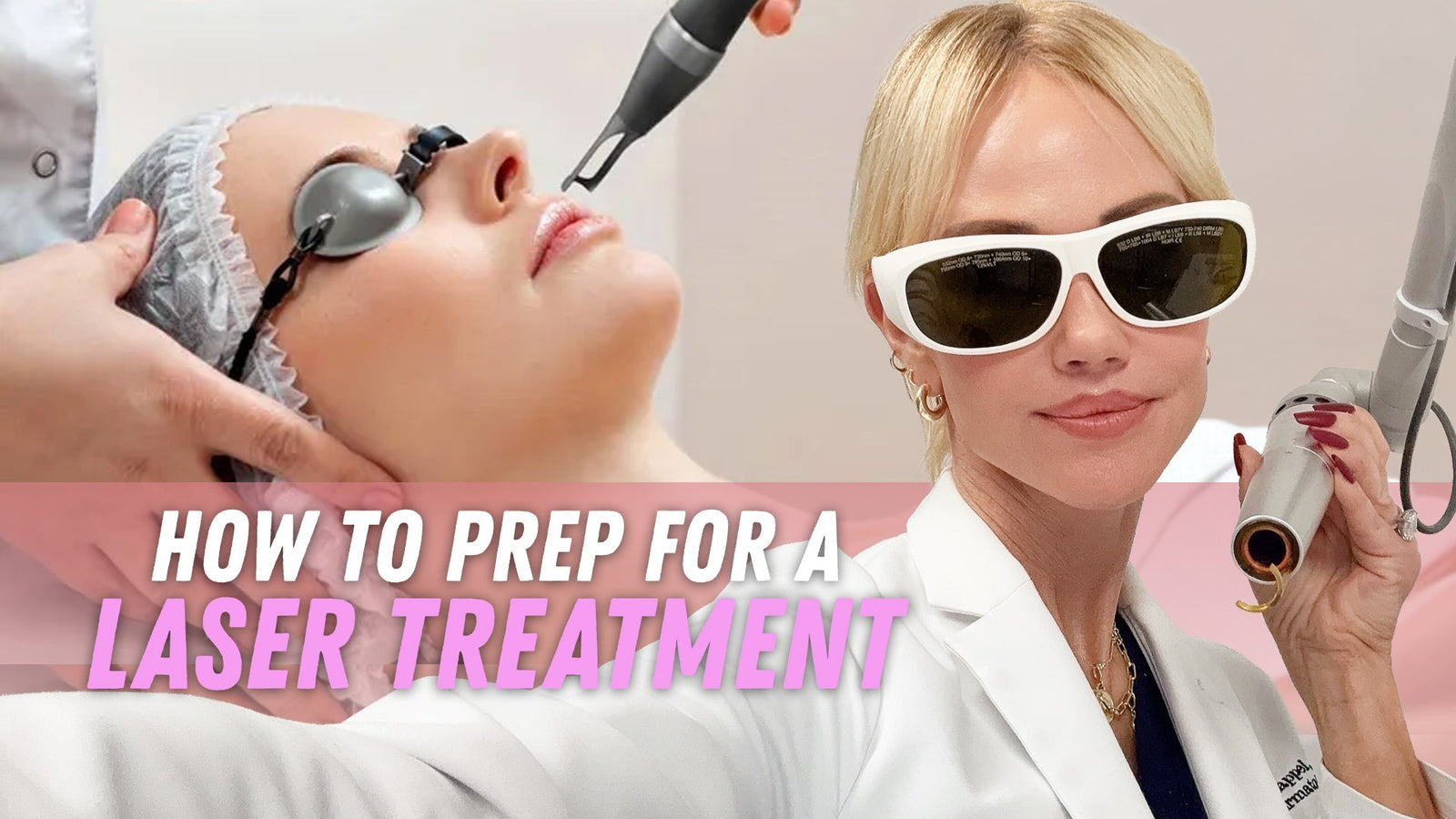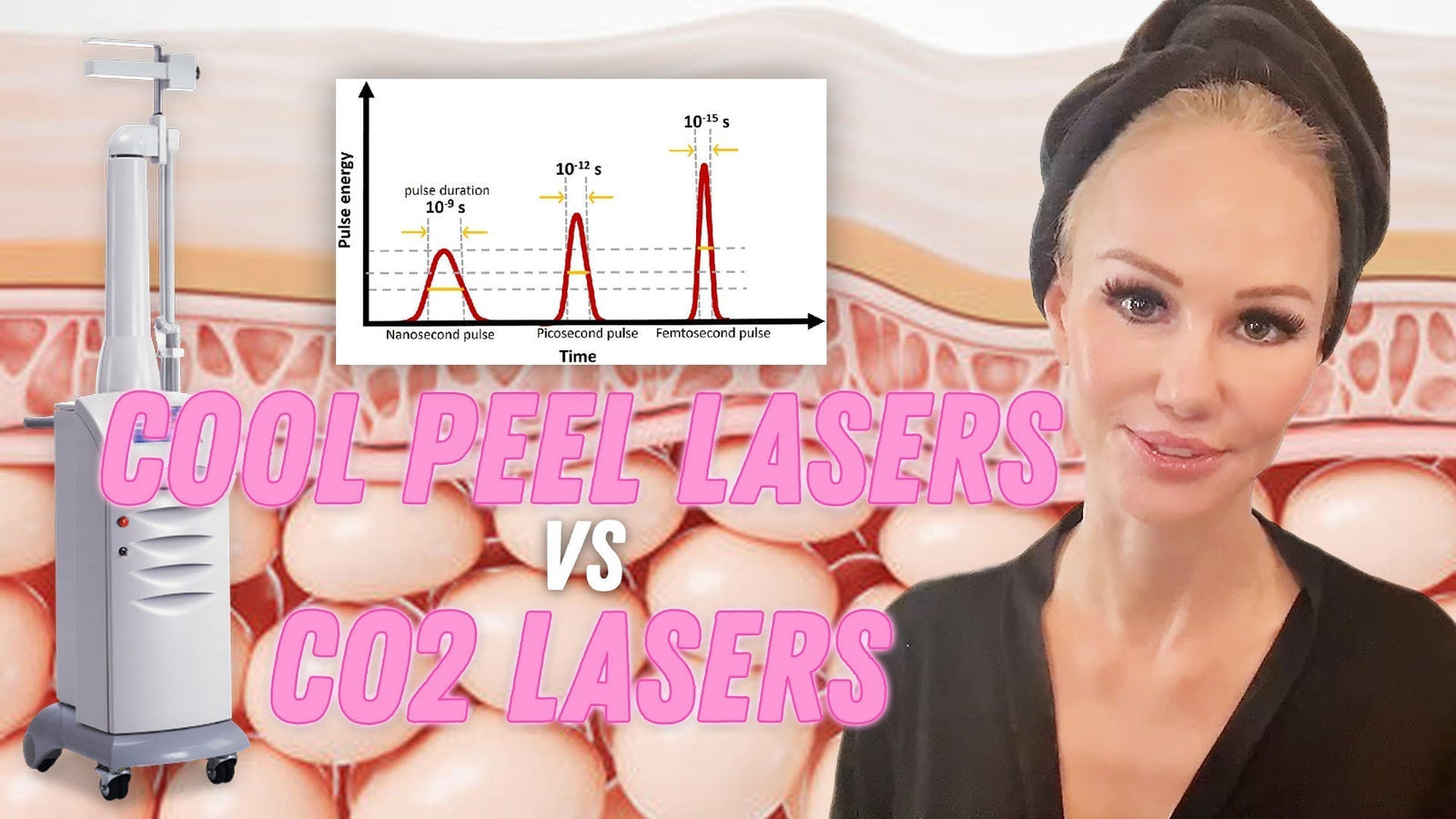Hi my beauties!!! If I was stranded on an island and could only have one skincare active with me, what would it be?
As a board-certified dermatologist with almost 20 years of experience, I've seen many patients struggle with skin concerns. But what if I told you that there is one skincare active that can be most impactful for your your skin and lead you to healthy, beautiful skin over a lifetime? In this article, I'll explore Vitamin A derivatives:Tretinoin and Retinol, explaining why they're the gold standard of skincare actives and how to use them safely and effectively.
Make sure to watch my newest Youtube video for a deeper dive into Tretinoin and Retinol and where discuss some alternatives available on the market
What is Tretinoin?
Tretinoin is a prescription-strength retinoic acid, which is a vitamin A derivative. It's a powerful skincare active that can stimulate collagen production, reverse sun damage, and transform the skin barrier to be stronger and more resilient. But, as I'll discuss later, it's crucial to use it correctly to avoid irritation and get the best results and why alternatives you are hearing about may not be the best solution for your skin.
Why Use Tretinoin?
Tretinoin has been extensively researched, and the evidence supports its effectiveness in improving skin texture, reducing fine lines and wrinkles, and addressing hyperpigmentation. As a dermatologist, I've seen firsthand the impact that Tretinoin can have on the skin. In fact, when I walk into see a patient at the clinic I can often tell when the patient is an avid Tretinoin user. The skin just glows different. When used correctly, it can be a game-changer for skin health.
My Experience with Tretinoin
As a young dermatologist, I started using Tretinoin in my early 20s. I was mostly looking to solve my acne concerns. At first, I used it incorrectly, applying too much product and expecting immediate results. But after learning more about it and adjusting my usage and dosage, I've seen remarkable improvements in my skin. Over the years, I've reaped the benefits of using Tretinoin consistently, and I believe it's one of the best things I've done for my skin.
Does Tretinoin Thin Skin?
Understanding how Tretinoin affects the skin’s anatomy helps clear up the confusion. The skin consists of three main layers: the epidermis, dermis, and hypodermis. Tretinoin primarily works on the epidermis by speeding up cell turnover, which exfoliates dead skin cells. At the dermis level, Tretinoin stimulates fibroblasts to produce more collagen and elastin, thickening the skin and reducing signs of aging. Its effects are not superficial but restorative at a deeper level.
Many people believe that Tretinoin thins the skin, but this is a misconception and not supported by scientific evidence. While it's true that Tretinoin causes the stratum corneum—the outermost layer of dead skin cells—to thin, this actually leads to a smoother, more radiant appearance. More importantly, Tretinoin stimulates the deeper layers of the skin, promoting the production of collagen and elastin. This thickens the dermis, strengthening the skin's structure and improving firmness over time. So, rather than making your skin weaker, Tretinoin helps rejuvenate and fortify it from within.
Conversion Pathways Between Different Retinoids
Not all retinoids work the same. Tretinoin is the active form of Vitamin A, meaning it doesn’t need to be converted by the skin to be effective. In contrast, over-the-counter retinol must first be converted to retinoic acid before it can begin working. This conversion process makes retinol less potent but also gentler on the skin. Patients new to retinoids or with sensitive skin may benefit from starting with retinol before transitioning to more potent options like Tretinoin.
Why Use Retinol?
Retinol is an over-the-counter skincare active that is within the vitamin A derivative family. Like Tretinoin, it can stimulate collagen production, reverse sun damage, and transform the Skin Barrier. While it may not be as powerful as prescription-strength Tretinoin, Retinol can still have a significant impact on the skin when used consistently. I also want to stress that many people can benefit from using Tretinoin 1-3 times a week, and can supplement with a retinol product on the other days. I always stress that consistency with lower dosages is better than high dosages inconsistently.
The Importance of Formulation and Delivery Systems
The effectiveness of Tretinoin or any retinoid largely depends on the formulation and delivery system. Well-formulated products can ensure optimal penetration without causing irritation. Microencapsulation and slow-release technologies are often used in advanced formulations to deliver retinol gradually, reducing the risk of side effects. As a dermatologist, I always stress the importance of selecting products with effective, stable formulations to ensure the retinoid can penetrate the skin and perform its function properly.
MDAiRE RXR Retinol Anti-Aging Serum
This is exactly why I formulated my RXR Retinol Serum. I wanted to ensure I had a retinol product to share with my patients to use in supplementation with Tretinoin usage, or as a daily retinol product for more sensitive skin types. We use micro encapsulation for delivery and this product gets all the good actives to where we need it to go in the cells to product change. This means you get a 1% formulation that is non irritating but with noticeable results. If you want to learn more, click HERE
Comparison of Retinol to Alternative Products
While Tretinoin and retinol are gold standards in anti-aging and acne treatments, there are alternative products being marketed all the time. However, these alternatives often work through different mechanisms, lack extensive research and clinical data to demonstrate the same results as Tretinoin and Retinol.
While ingredients like Bakuchiol and Rosehip Oil are often marketed as being as effective as Retinol, the scientific evidence is much less robust. Studies on these alternatives are often smaller in scale and shorter in duration, meaning they lack the extensive clinical backing that Retinol and Tretinoin have. Additionally, while they may offer some benefits, their mechanisms are not identical to Retinol and Tretinoin, and the results are typically less dramatic.
There are many active ingredients that I love but again, they don't have the same mechanism or results that Tretinoin and Retinol do. Peptides support collagen synthesis but don’t speed up cell turnover like retinoids. AHAs and BHAs can exfoliate the skin but don’t penetrate deeply to stimulate collagen production. Antioxidants protect the skin from free radical damage, but they don’t actively reverse signs of aging. Tretinoin and Retinol stand out because they directly promotes cellular regeneration and collagen production, offering both preventive and corrective benefits. Alternatives can complement retinoids but rarely provide the same multi-faceted skin rejuvenation effects.
Tips for Incorporating Retinoids into Skincare Routines
Introducing retinoids into a skincare routine can be tricky, especially for those new to the ingredient. Start with a lower concentration, like retinol, applying it 2-3 times per week, gradually increasing frequency as your skin builds tolerance. If you find that your skin is tolerating this, don't hesitate to speak to your dermatologist about a Tretinoin prescription. Always apply retinoids at night, as they can increase sun sensitivity. Pair retinoids with a gentle cleanser and a hydrating moisturizer to combat dryness or irritation. For sensitive skin, use the “sandwich method”—apply a thin layer of moisturizer before and after the retinoid to buffer the skin.
Tretinoin and Retinol are two skincare actives that have been extensively researched and supported by scientific evidence. By understanding how to use them correctly and incorporating them into your skincare routine, you can achieve healthy, beautiful skin over a lifetime. Remember to start low and slow, be patient. If you have any questions about starting a Vitamin A derivative don't hesitate to reach out to us.



